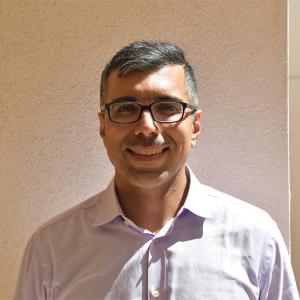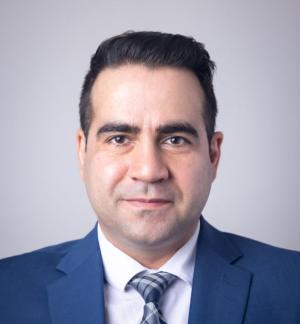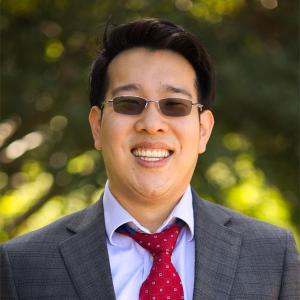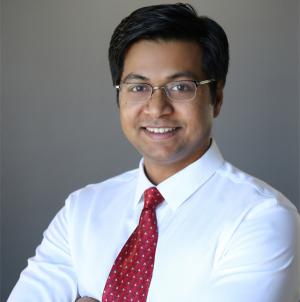New Faculty 2023
Ebrahim Amiri
EE Department Chair

Ebrahim Amiri received the B.Sc. and M.Sc. degrees from Amirkabir University of Technology, Tehran, Iran, in 2005 and 2008, respectively, and the Ph.D. degree from Louisiana State University, Baton Rouge, LA, USA, in 2013, all in electrical engineering. In January 2015, he joined the Electrical and Computer Engineering Department at University of New Orleans, where he served as the graduate program coordinator (2020-2023) and the Chair of the Department (2022-2023). In July 2023, he joined the Electrical Engineering Department at California State University, Long Beach. His current research interests include design, development and modeling of electric machines. For example, the design, development and analytical/semi-analytical modeling of electrical machinery (e.g., IPM and SPM machines), and electromagnetic devices (e.g., fault current limiter) and power electronics converters in motor drive, and renewable energy applications (e.g., grid connected inverter based resources).
Amir Ghasemkhani
CECS Assistant Professor

Amir Ghasemkhani is an Assistant Professor in the Department of Computer Engineering and Computer Science at California State University Long Beach. He was previously a postdoctoral researcher in the Computer Science and Engineering department at the University of Nevada Reno (UNR). He also received his Ph.D. in Computer Science and Engineering from the UNR in 2019. Prior to joining UNR, he received his B.S. and M.S. in electrical and computer engineering in 2011 and 2014 in Iran, respectively. His research interests revolve around AI privacy and security for cyber physical system (CPS) applications. He has been collaborating with different groups from universities (University of Nevada, Arizona State University, Virginia Tech University), government agencies (DOE, NYPA, PNNL), and industry (IBM).
Derek Hu
BME/CECS Assistant Professor

Dr. Derek Hu joined the CSULB Department of Biomedical Engineering as an Assistant Professor in Fall 2023. He obtained his Ph.D. in Biomedical Engineering from the University of California, Irvine in 2023.
Dr. Hu's research focuses on developing and utilizing computational techniques on neural timeseries, with a focus on subjects with epilepsy. During his graduate studies, Dr. Hu's utilized various signal processing techniques to identify quantitative biomarkers in the electroencephalogram for the evaluation of developmental and epileptic encephalopathies.
Arash Sarshar
CECS Assistant Professor

Dr. Arash Sarshar is an assistant professor at the Computer Engineering and Computer Science Department at California State University, Long Beach. His research interests span the theory and applications of machine learning and numerical methods for scientific simulations. He is also interested in using data science to inform public health and policy decisions.
Dr. Sarshar joined the College of Engineering in the Fall of 2023 after serving as a postdoctoral associate in the Department of Computer Science at Virginia Tech, where he also earned his Ph.D. He has Master's and Bachelor's degrees in Electrical Engineering.
Shams Tanvir
CECEM Assistant Professor

Dr. Shams Tanvir is an Assistant Professor in the CSULB Department of Civil Engineering and Construction Engineering Management. Previously, he was an Assistant Professor at Cal Poly SLO and a research faculty at the University of California- Riverside. Dr. Tanvir is a member of Transportation Research Board (part of National Academies of Science, Engineering, and Medicine) steering committees on Transportation Air Quality and Greenhouse Gas Mitigation and Highway Capacity and Quality of Services. He chairs the Sustainable Transportation committee at the American Society of Civil Engineers (ASCE). Dr. Tanvir received his Ph.D. in Transportation Systems Engineering from North Carolina State University. He received B.S. and M.S. in Civil Engineering from Bangladesh University of Engineering and Technology, Dhaka.
Dr. Shams Tanvir conducts research and teaches in the area of sustainable mobility. His research aims at the development and characterization of transportation technologies that minimize energy consumption and emissions while enhancing mobility efficiency and equity. Tanvir led projects sponsored by US Department of Transportation, the California Air Resources Board (CARB), the US Department of Education, and the California Department of Transportation.
At CSULB, Dr. Tanvir works with the students of Sustainable Mobility Laboratory (SuMoLab). The two main building blocks of the SuMoLab are high-fidelity system simulation and piloting of emerging technologies.
Jingyi Zeng
MAE Assistant Professor

Dr. Jingyi Zeng joined the Department of Mechanical and Aerospace Engineering at California State University, Long Beach as an Assistant Professor in Fall 2023. She received her Ph.D. and M.S. in Mechanical and Aerospace Engineering from the University of California, Irvine in 2023, with a specialization in fluid dynamics. Prior to that, she completed her bachelor’s degree in Energy, Power Engineering and Automation from Xi’an Jiaotong University in 2016, where she was distinguished as a member of the Special Class for the Gifted Young.
Dr. Zeng's research primarily focuses on Computational Fluid Dynamics (CFD), non-classical gas theory, turbomachinery design, scientific computing, and the integration of machine learning methodologies within CFD frameworks. Her previous work has delved into the realm of nonclassical gas dynamics, with a profound focus on the theoretical investigations and numerical simulations of the Bethe-Zel'dovich-Thompson-type dense gases in various flow regimes. She developed an innovative pressure-based solution methodology for compressible flow to address the stiffness issue encountered near the gas critical point. Additionally, she has incorporated machine learning techniques to advance modeling thermodynamic properties in Non-Ideal Computational Fluid Dynamics (NICFD). Beyond this, Dr.Zeng's work in NICFD emphasizes its applications in the growing domain of renewable energy and sustainable power systems, including the efficient operation of hydrogen infrastructure systems and the design and optimization of the Organic Rankine Cycle (ORC) engines.
Paul Ayegba
MAE Assistant Professor
Dr. Paul Ayegba will be joining CSULB in January. Ahead of his arrival he sat down for a quick Q&A:

- Flow Boiling (earth and microgravity flow boiling, high pressure flow boiling, theoretical and mechanistic modelling of flow boiling)
- Multiphase flow (gas-liquid flow, liquid-liquid flows, complex and reactive flows)
- Drag reduction (additive drag reduction, surface modification)
- Machine learning and computational fluid dynamics (applied to the above areas)




